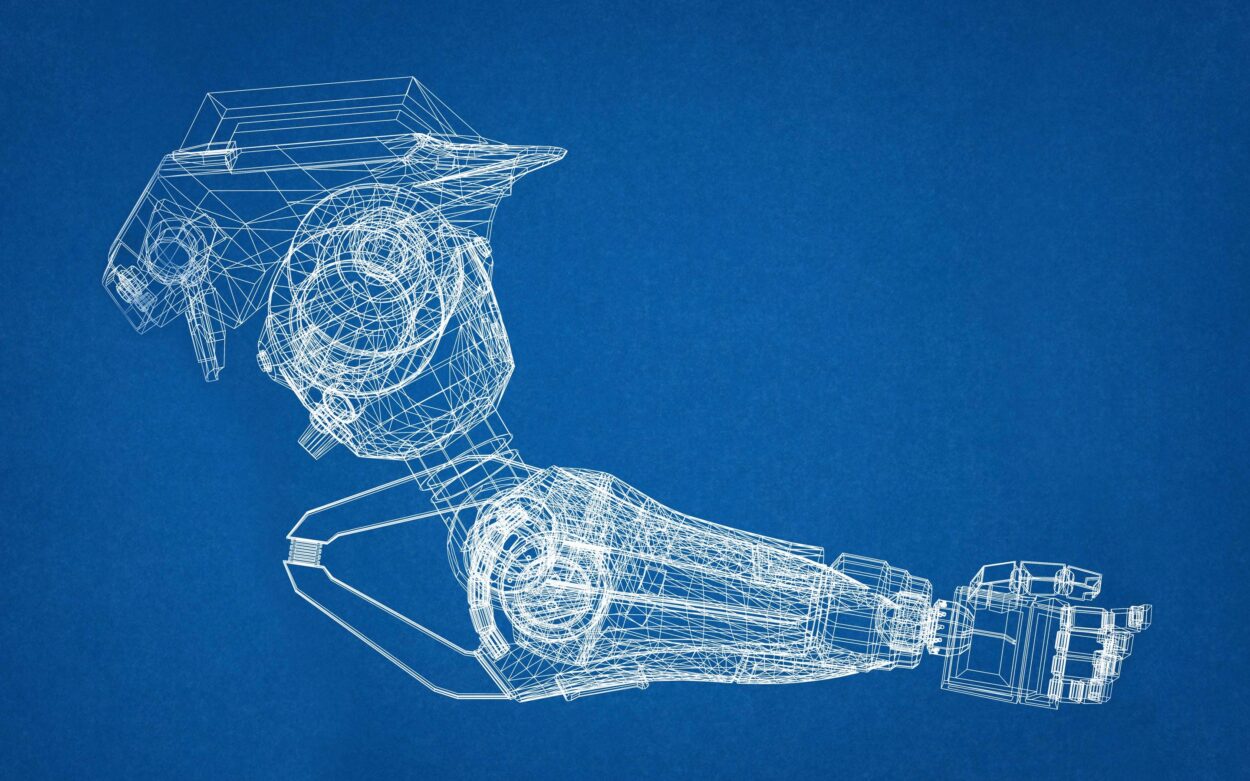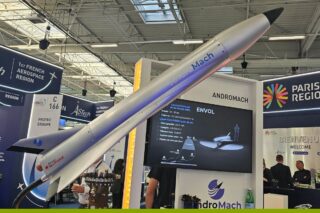At Hannover Messe, artificial intelligence was a major topic this year. During the fair, we met Peter Fintl, the Vice President of Technology & Innovation at Capgemini Engineering to talk about how AI is impacting industry and its potential for the future. We also talked about metaverse, digitization and labor shortage.
Cap Gemini is a French consulting firm that specializes in researching hot topics and has been closely following the development of AI for many years. Recently, ChatGPT and other generative transformative models have become a booming area of study for the company.
At Hannover Messe 2023, where AI was a hot topic, Peter Fintl, Vice President of Technology & Innovation at Capgemini Engineering, shared his insights on the AI revolution and its potential impact on industry. He also discussed the metaverse and the ongoing digital transformation.


AI is a hot topic this year at Hannover Messe with ChatGPT being on everyone’s lips. How do you see the impact of AI on industry?
Peter Fintl: “AI is a ubiquitous topic that is transforming our lives and society, transcending all businesses and industries. The significant progress AI has already brought to industry has had a tremendous impact. At Capgemini Engineering, we refer to it as augmented intelligence, and we see a bright future for this technology that will continue to impact the lives of office workers, blue-collar workers, and engineers alike.
Through AI, systems can assist individuals in their thinking process, complete tasks that are time-consuming, tiring, or tedious, and even enter the realm of engineering. The world of business is rapidly evolving thanks to AI.”

It appears that ChatGPT has reignited interest in AI. What is your opinion on this?
Peter Fintl: “When AI first emerged, it was surrounded by a great deal of hype. However, creating practical applications and business value with AI has proven to be more challenging than initially thought. Although popular products such as Alexa and Google Glass are widely admired, the use of AI on the shop floor is primarily limited to machine learning and deep learning applications, for quality control or condition-based monitoring. Such applications are now standard in industry, and companies have learned how to integrate them effectively. As a result, AI may have lost some of its excitement. However, with the development of Open AI, the technology is once again generating hype and excitement.”

What is breathtaking about ChatGPT and how industry could benefit from it?
Peter Fintl: “The concept of Industry 4.0 originated from Hannover Messe, where we are currently present, a decade ago with the aim of leveraging data to make better decisions, and predictions, and perform high-quality image recognition for inspections. As AI evolved, it emerged as a powerful tool to draw better conclusions than humans and predict potential failures in complex production chains.
Today, advanced AI systems like ChatGPT are capable of serving as comprehensive intelligent assistants for everyone. This technology enables users to perform tedious and time-consuming tasks and supports their thinking processes, without replacing human cognitive abilities.
Another impressive aspect of GPT models is the rapid speed of their development. While initially requiring a supercomputer or cloud-based computer to train, in just a few months, this technology can now operate on desktop computers and edge applications in industry. The speed at which the technology has advanced demonstrates its potential and signals that it will be quickly embraced by a broad range of industries.
These systems are already finding applications in engineering life, and companies are working to integrate AI into real products. With AI-assisted programming and development tools, engineers and designers can boost their productivity and design more efficient and effective products. For instance, PLC programming can be performed with the help of an AI assistant, which will soon be a common feature across different areas of industrial production.”
RELATED ARTICLE

The metaverse topic appears to have lost some of its hype this year, particularly with ChatGPT gaining prominence. Does this mean that the metaverse is no longer relevant?
Peter Fintl: “Emerging technologies always go through a hype cycle, characterized by an initial surge of excitement, followed by disillusionment and a gradual increase in interest as real value applications of the technology emerge.
The concept behind the metaverse was to create a persistent model of the physical world in the virtual space, with the potential to revolutionize business models and generate a wide range of applications. However, the creators may have overestimated the value that the metaverse could bring. From an industrial perspective, the metaverse does not appear to offer anything new, as much of what it provides to industry is already available through digital twins. However, the industry is taking time to fully comprehend the new opportunities and capabilities that the metaverse can provide. When combined with simulation and digital twin technology, the visualization of the metaverse will become a powerful tool, offering significant gains in efficiency for engineering applications. We believe that the metaverse has the potential to be a valuable tool for industry.”

How do you perceive the readiness of your industrial clients in adopting new technologies such as AI, virtual engineering, etc.?
Peter Fintl: “Our clients, particularly those in traditional industries, are eager to incorporate intelligence into their companies as they face pressure from the digital world. This phenomenon, known as the “softwarization” of the world, requires fundamental changes in their organization to generate value, business, and scalability. However, many companies tend to overestimate their maturity in terms of digitization and virtual engineering and need to examine their processes closely.
To remain competitive, they must quickly adopt these technologies. In Germany, for instance, some companies had to automate their manufacturing processes to survive and have succeeded in doing so. While this pressure has resulted in the production of smart and efficient manufacturing tools, the switch to becoming a fully digital company remains challenging, even after years of digitalization and the pandemic. The key is to determine the real value of these technologies.”

How are you advising and supporting your clients in accommodating their workforce with the implementation of new technologies?
Peter Fintl: “Right now, there is a shortage of skilled labor, which poses a significant challenge to industries. This shortage is particularly acute for digital transformation and AI, as these fields require highly specialized expertise. The competition for AI talent is fierce, and this shortage is not expected to go away anytime soon. As the Chancellor has emphasized, we need to find ways to attract skilled professionals to Europe to drive innovation and growth.
At the same time, we also need to invest in reskilling and upskilling the existing workforce. The pressure is high, and the pace of technological change is rapid. We need to be proactive and ensure that people have the necessary skills to thrive in the digital economy. This is especially important for an aging society, where AI and automation can play a critical role in improving productivity and quality of life.
Digitization was accelerated by the COVID-19 pandemic, and we expect the same for AI. The potential benefits are enormous, and companies need to embrace this technology to remain competitive. The good news is that adopting AI is feasible, but it requires a strategic approach and the right ecosystem of partners and technologies.
However, we must not overlook the importance of transforming people alongside technology. We cannot achieve true digital transformation without changing the culture, mindset, and skillset of our workforce. At Capgemini Engineering, we see ourselves as transformation partners who help our clients reskill and upskill their employees to meet the demands of the digital economy. This includes supporting individuals in learning new skills, such as coding, and enabling them to transition into new roles and careers. Ultimately, transformation efforts are only successful if we focus on the skills, culture, and mindset of people.”











